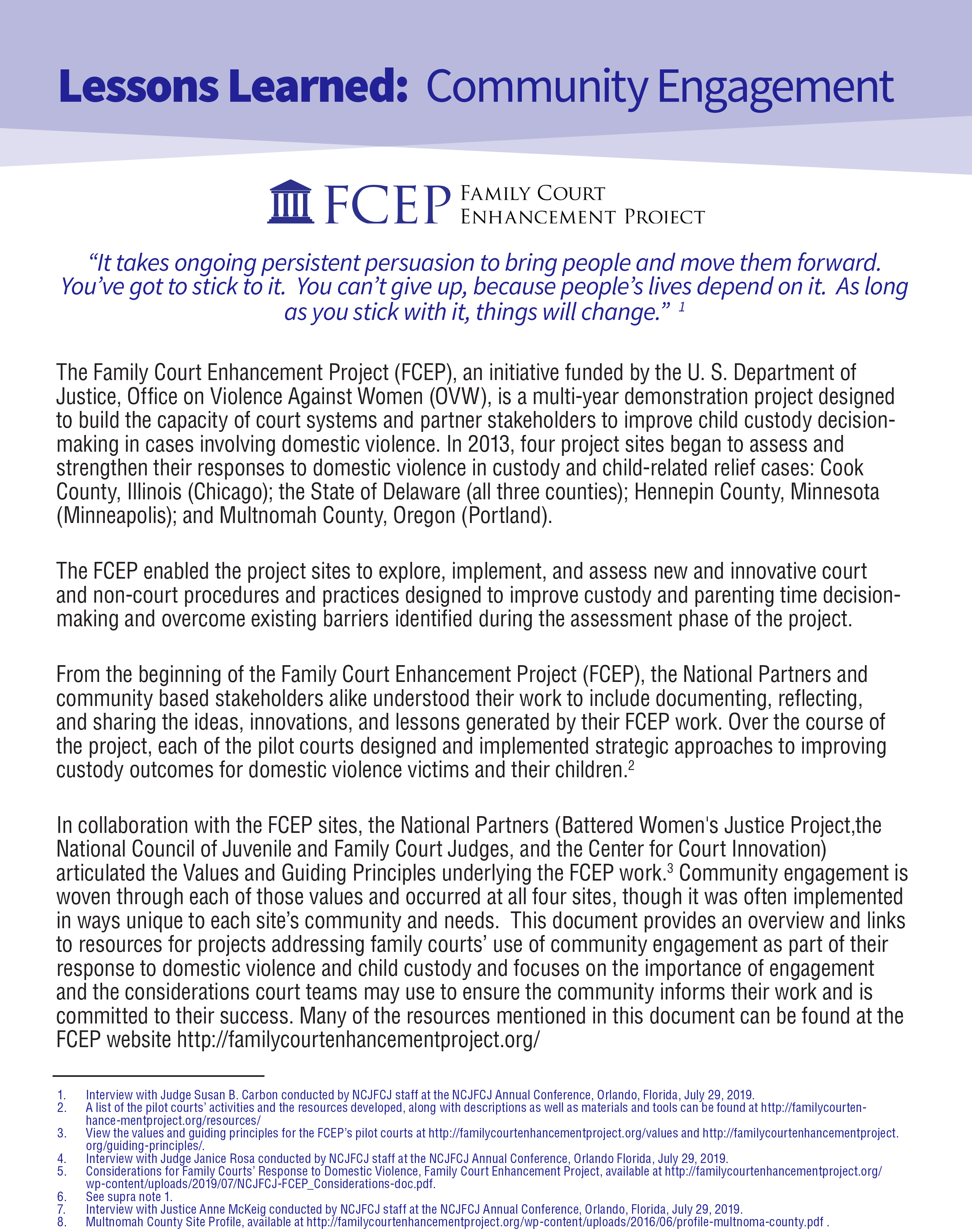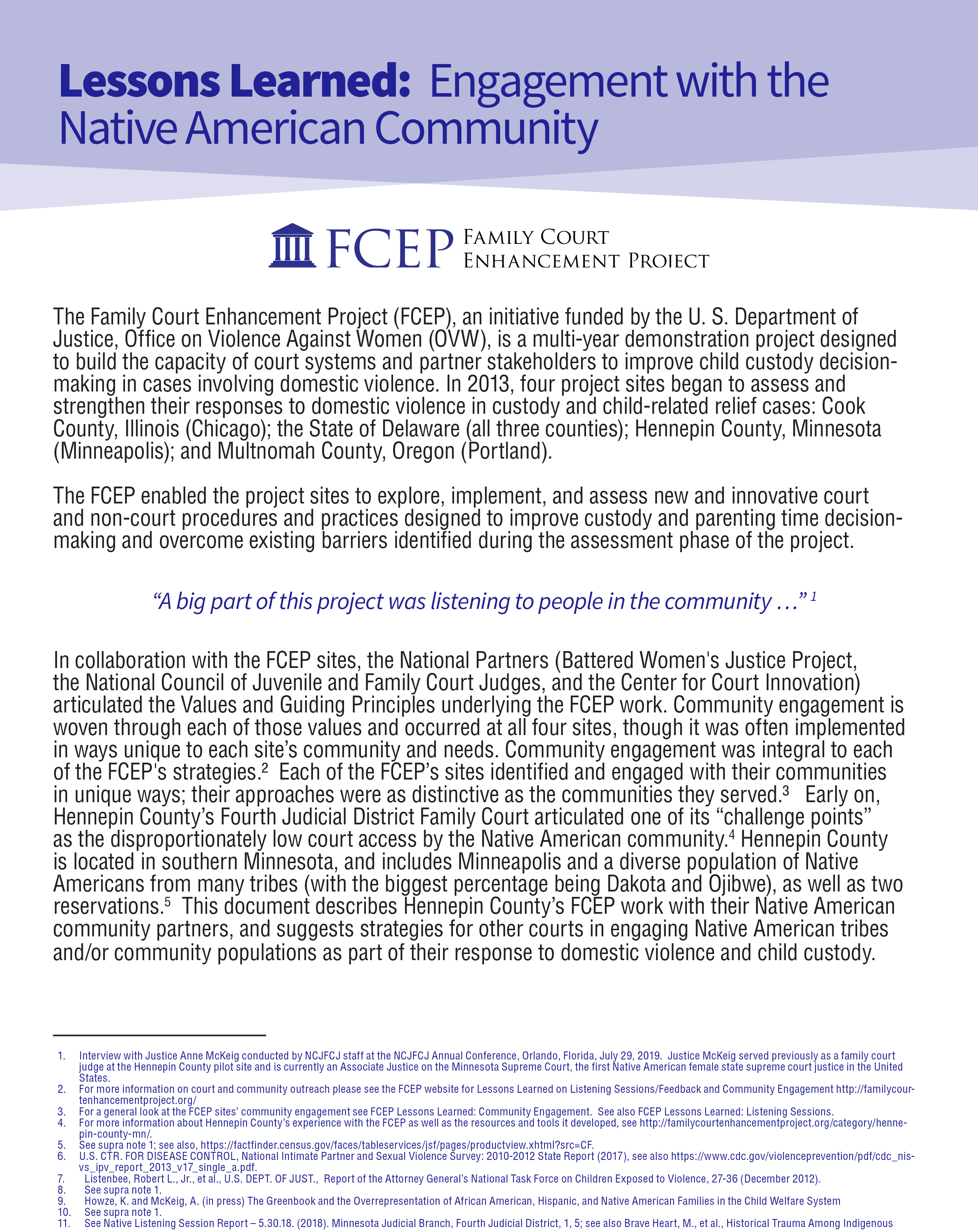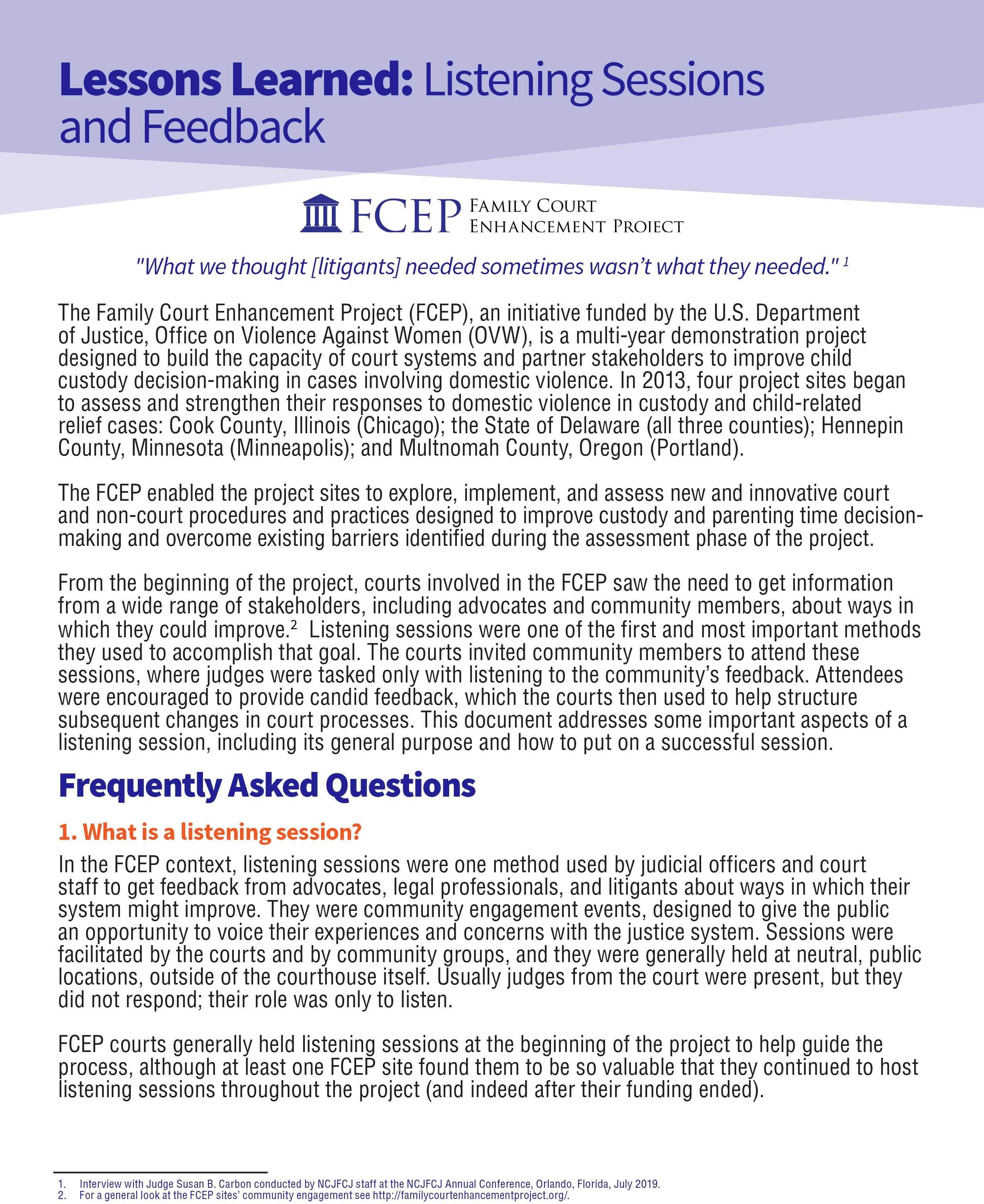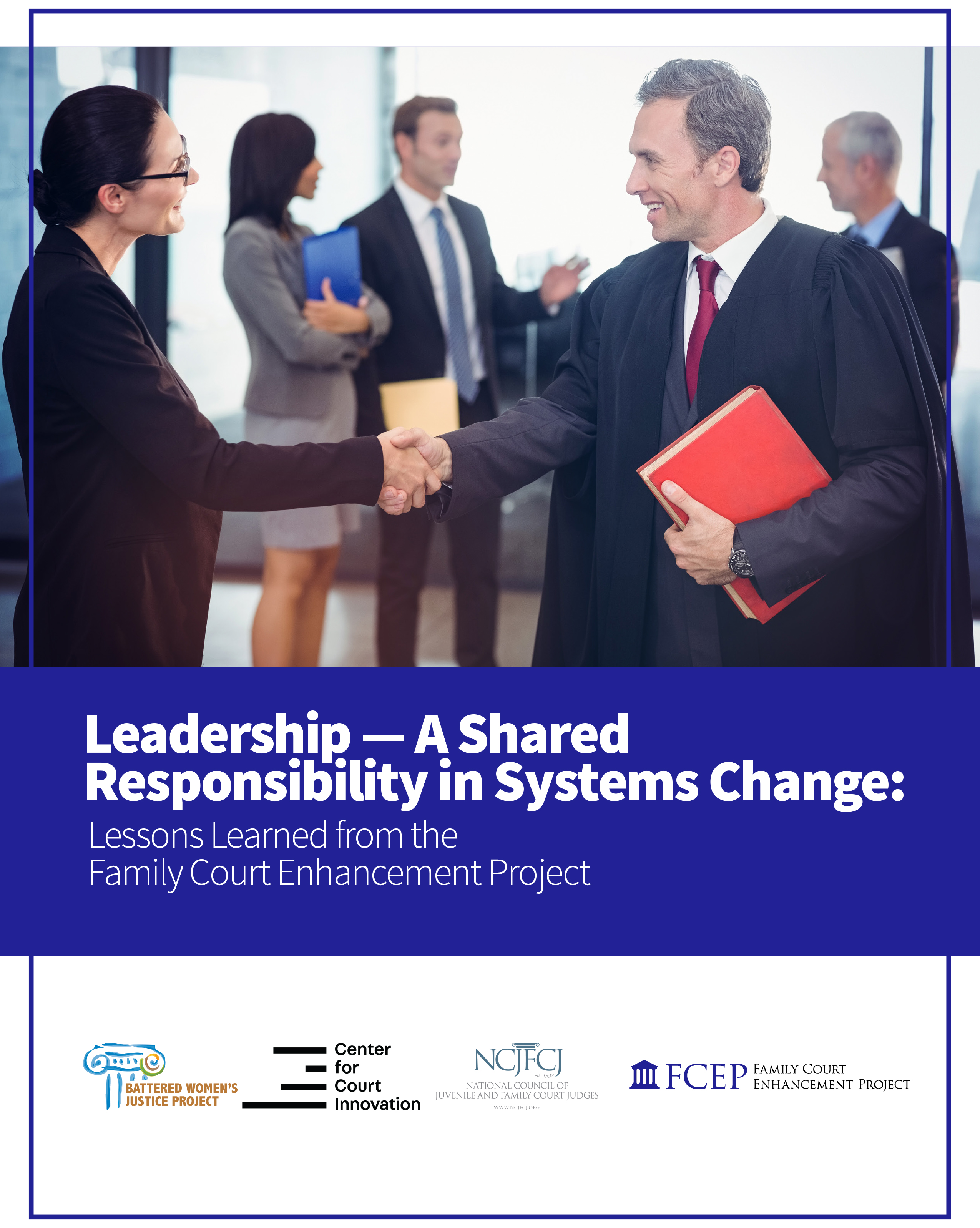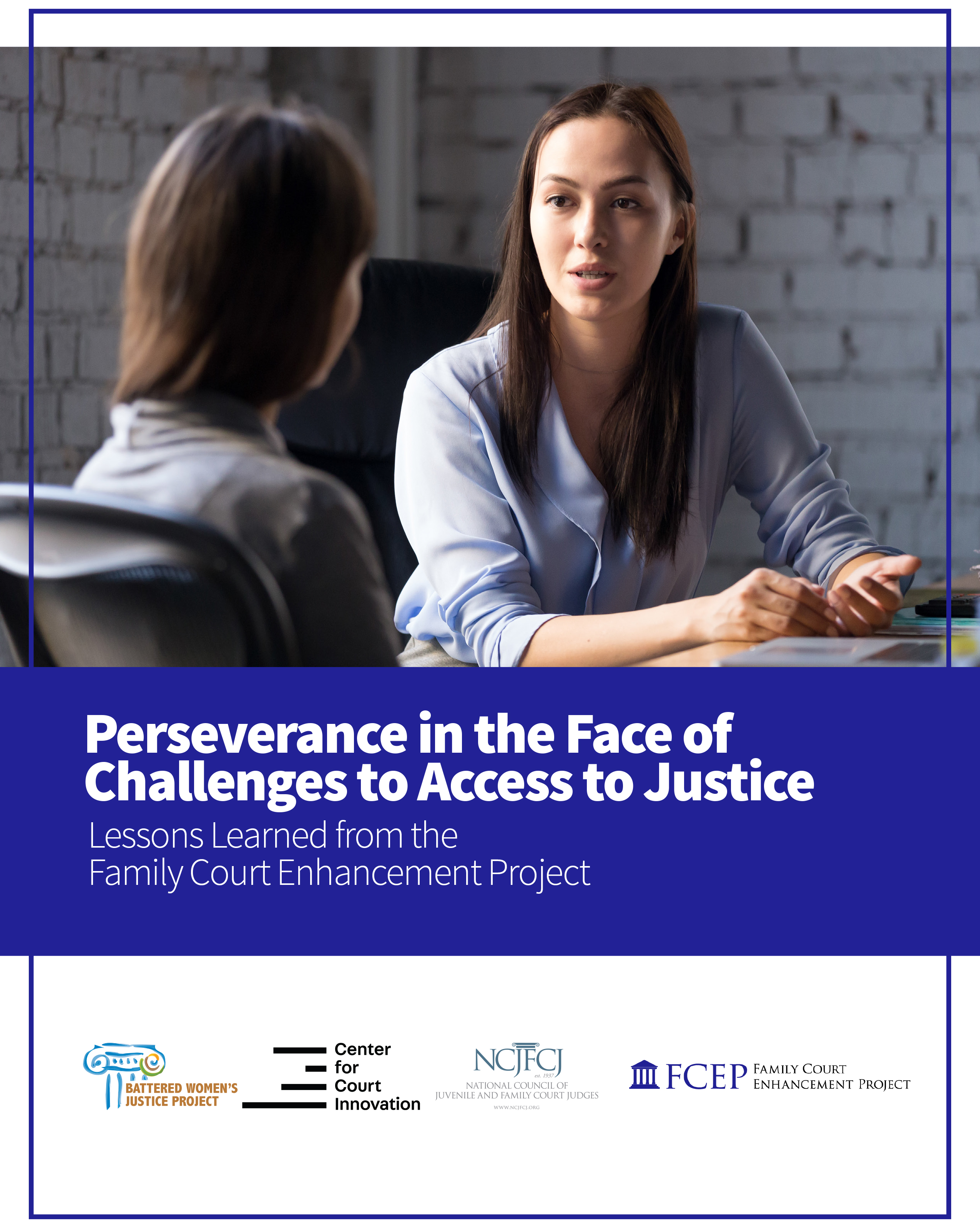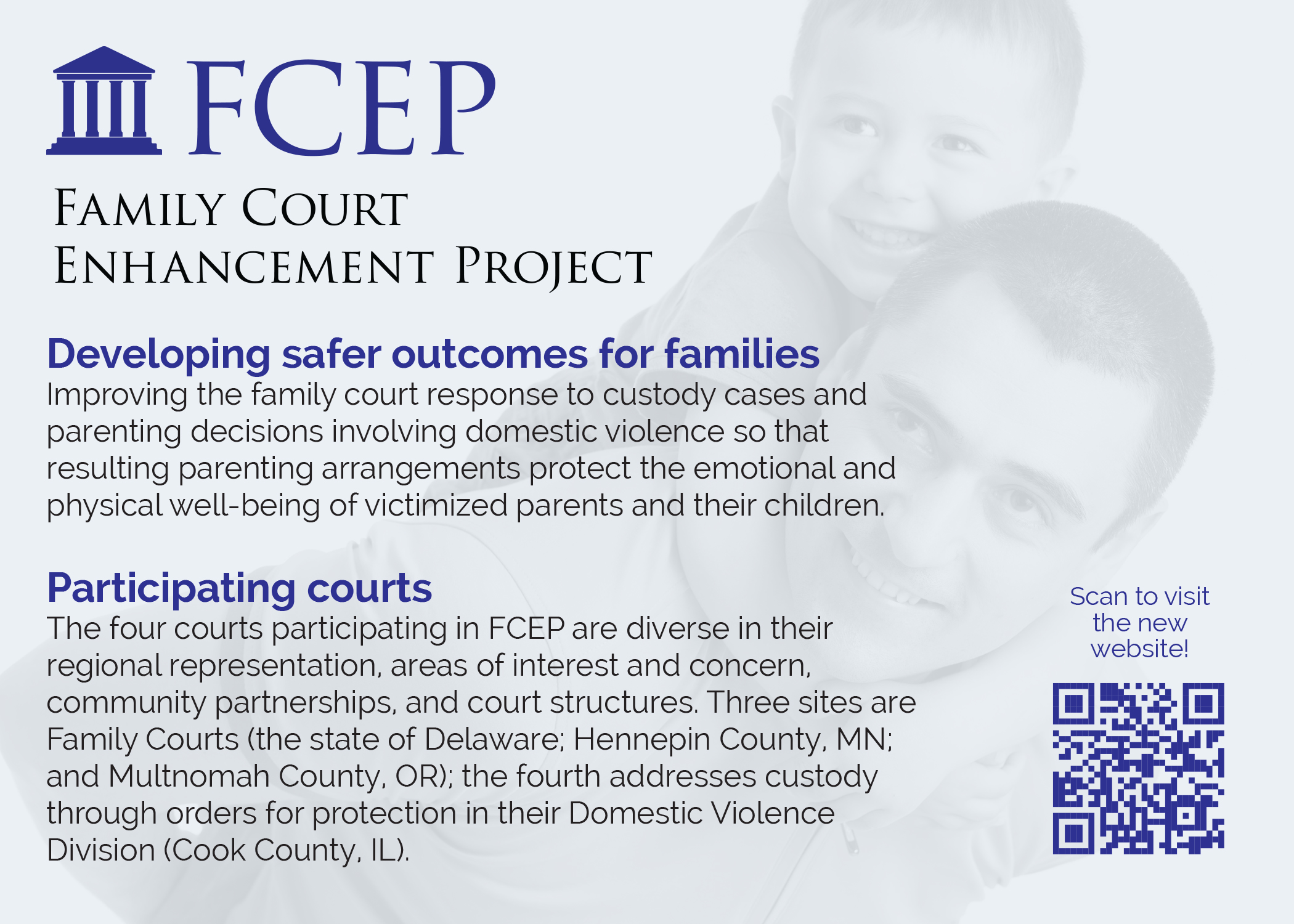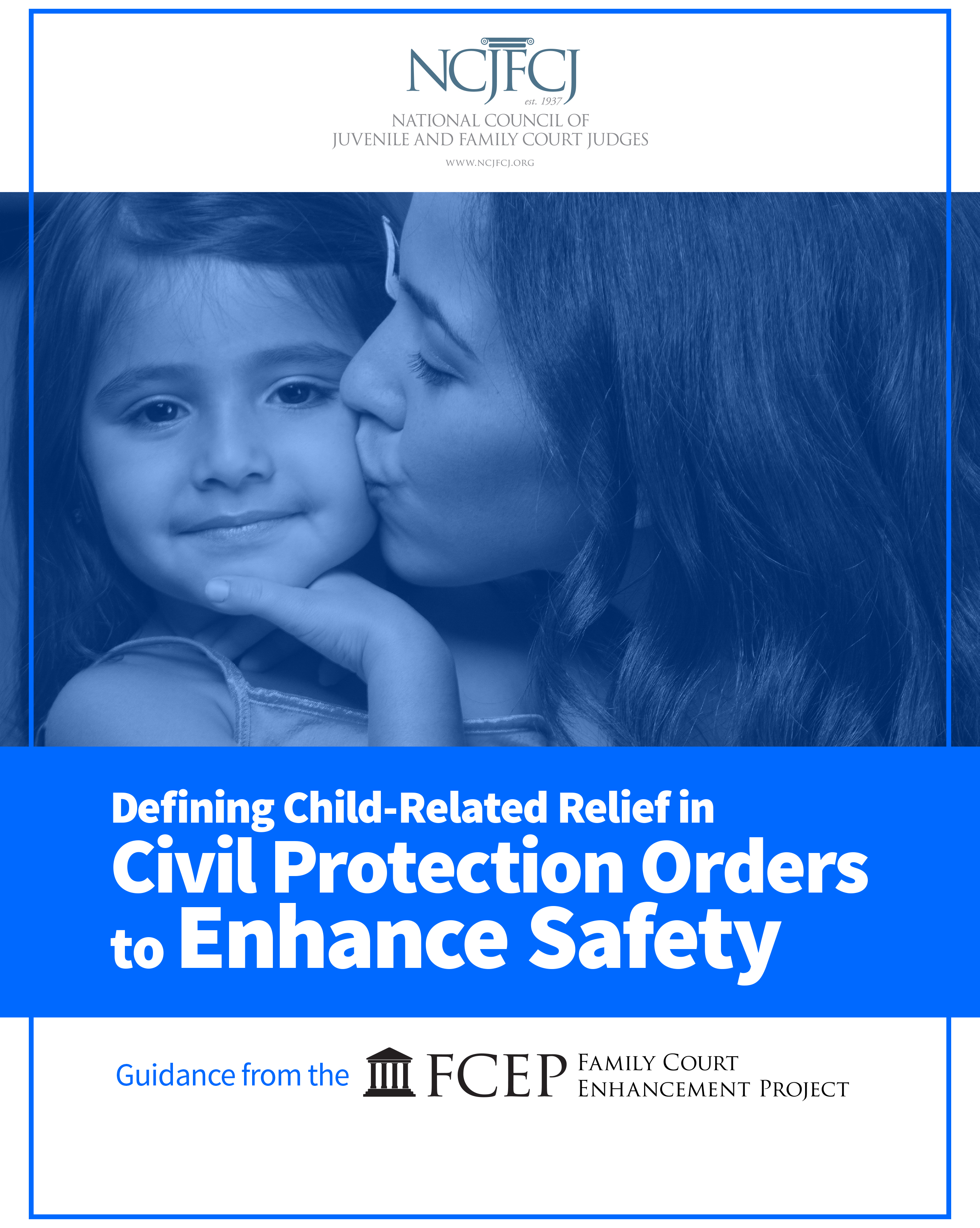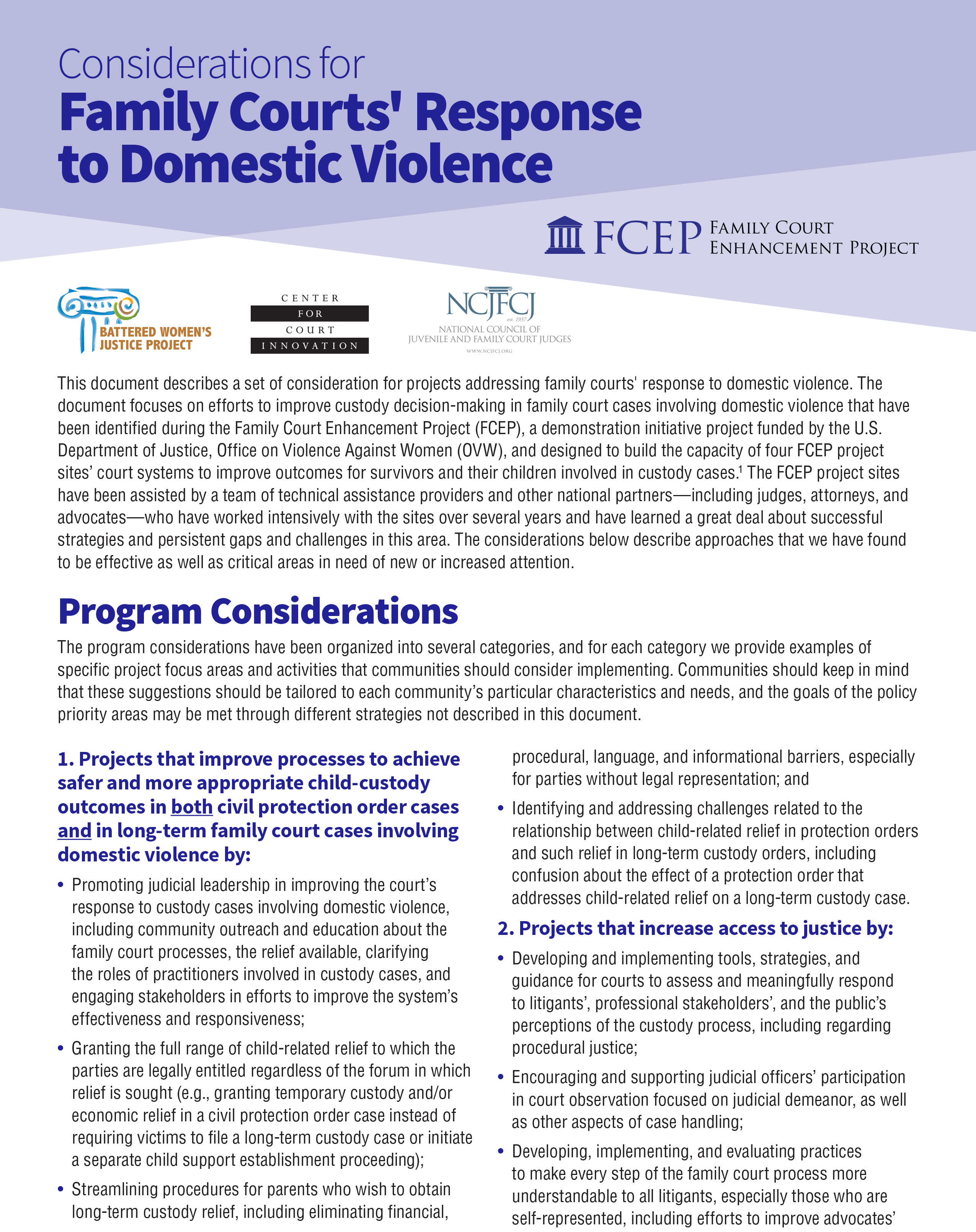Lessons & Products
Experiences at the four sites informed thinking on what tools, approaches, and resources are most helpful to survivors and their children. In particular, invaluable lessons were derived to improve practice beyond the four sites as well as products and materials to assist in such efforts. Gathered on this page are reports, tools, videos, interviews, and other materials and information that reflect these lessons and offer a roadmap that can help communities become aware of how the FCEP principles' promising practices were implemented in the four sites.
Lessons Learned
FCEP Identification and Assessment Lessons Learned
The presence of domestic violence can have major implications for child custody decision-making in any family court case. This lessons learned guide on Identification and Assessment provides specific guidance, supported by illustrative examples from the FCEP project sites, on how each family court practitioner can maximize the likelihood that survivors make informed and safe disclosures of any abuse so that the information for an effective response is made available to decision-makers. But an effective response also requires that each practitioner fully assess the nature and context of the abuse and its effects, and the guide includes discipline-specific strategies for conducting such an assessment as well.
Publications
Lessons Learned: Community Engagement
Community engagement is woven through each of those values and occurred at all four sites, though it was often implemented in ways unique to each site’s community and needs.
Lessons Learned: Engagement with the Native American Community
This document describes Hennepin County’s FCEP work with their Native American community partners, and suggests strategies for other courts in engaging Native American tribes and/or community populations as part of their response to domestic violence and child custody.
Lessons Learned: Listening Sessions and Feedback
From the beginning of the project, courts involved in the FCEP saw the need to get information from a wide range of stakeholders, including advocates and community members, about ways in which they could improve. Listening sessions were one of the first and most important methods they used to accomplish that goal.
Leadership — A Shared Responsibility in Systems Change: Lessons Learned from the Family Court Enhancement Project
Each of the four FCEP sites presented different learning opportunities. Together the sites provide a wide range of options and broad applicability to other jurisdictions interested in system change for domestic violence parenting cases. Courts and communities that are pursuing systems change work can benefit from the leadership lessons and guidance generated by these and other national projects.
Perseverance in the Face of Challenges to Access to Justice
A commitment to improve litigants’ access to justice emerged as a goal for all four FCEP sites. In seeking to improve the system, the teams at each site anticipated some challenges and were surprised by others. Here, we tell the story of challenges that confronted the sites and how they met and overcame them to increase access to justice for domestic violence survivors in their courts.
FCEP website reference postcard.
This handy postcard contains a brief statement about the Family Court Enhancement Project and includes a scan code to quickly access the website.
Defining Child-Related Relief in Civil Protection Orders to Enhance Safety
Many communities around the country are implementing or considering the use of facilitated settlement processes and other forms of alternative dispute resolution in civil protection order cases, a practice that may be safe and beneficial for victims of domestic violence, but only if important safeguards are established. This document is intended to provide guidance on these safeguards and how to design and implement a facilitated settlement process that we term “safety facilitation,” which specifically addresses child-related relief in civil protection orders.
Considerations for Family Courts’ Response to Domestic Violence
This document focuses on efforts to improve custody decision-making in family court cases involving domestic violence based on intensive work with the FCEP sites over several years. The sites learned a great deal about successful strategies and persistent gaps and challenges in this area. The considerations describe approaches that we have found to be effective as well as critical areas in need of new or increased attention.
Additional Resources
FCEP mediation webinar
This webinar provides information on ADR processes and domestic violence issues. At the end of this webinar participants will be better able to:
- Improve their ability to identify and assess the effects of domestic violence on a survivor’s ability to participate safely in an ADR process and on the fairness and effectiveness of the process.
- Examine their family court community’s practices related to use of ADR in IPV cases
- Incorporate modifications which enhance informed consent and address safety concerns of survivors
Message to Colleagues (ADR Providers and Court Administrators)
The Family Court Enhancement Project involved many stakeholders to ensure meaningful, comprehensive, and lasting systems change. The messages included here reflect the importance of diverse voices and participation to achieve positive results for families seeking assistance from court systems.
